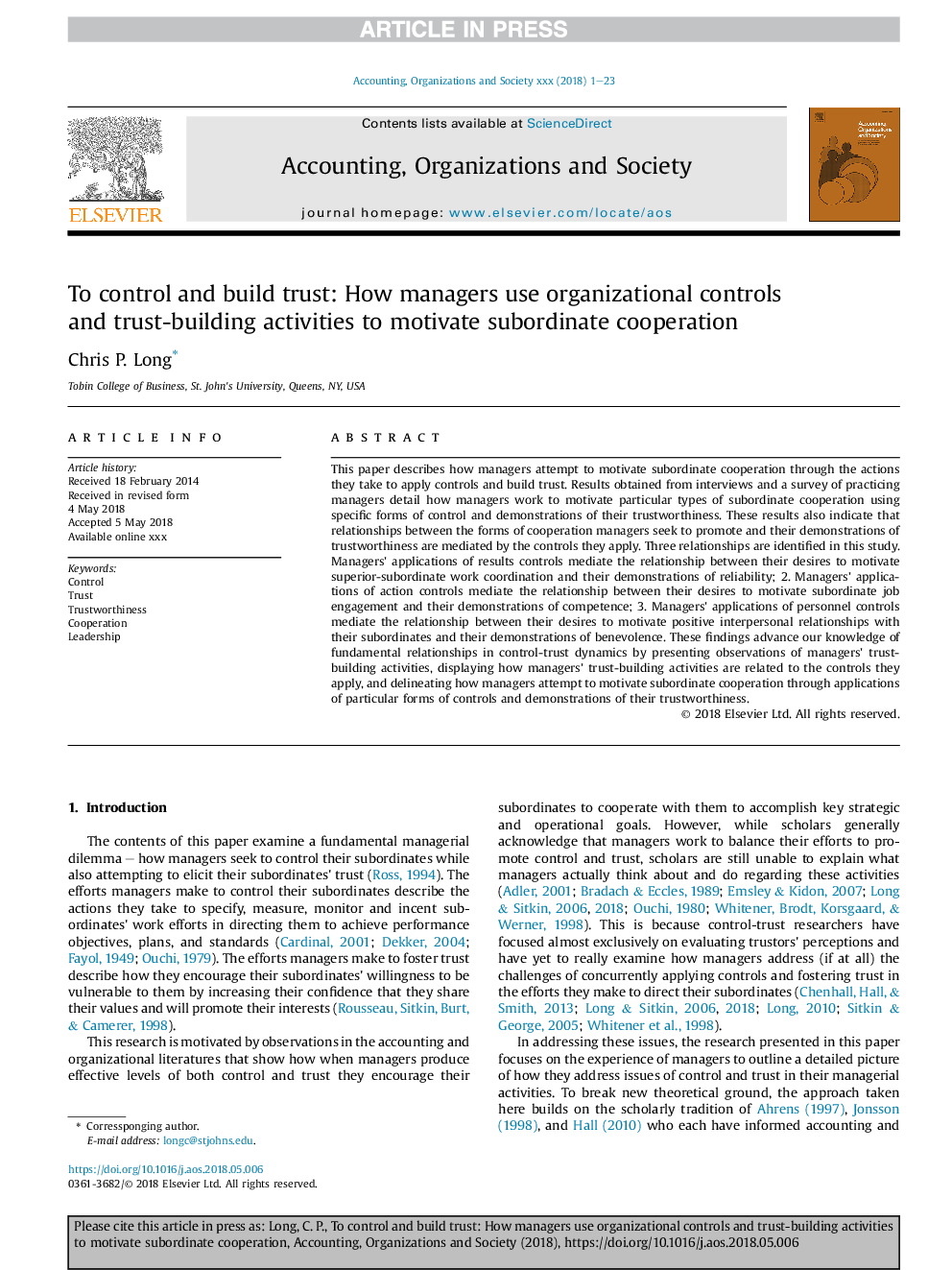| Article ID | Journal | Published Year | Pages | File Type |
|---|---|---|---|---|
| 11020642 | Accounting, Organizations and Society | 2018 | 23 Pages |
Abstract
This paper describes how managers attempt to motivate subordinate cooperation through the actions they take to apply controls and build trust. Results obtained from interviews and a survey of practicing managers detail how managers work to motivate particular types of subordinate cooperation using specific forms of control and demonstrations of their trustworthiness. These results also indicate that relationships between the forms of cooperation managers seek to promote and their demonstrations of trustworthiness are mediated by the controls they apply. Three relationships are identified in this study. Managers' applications of results controls mediate the relationship between their desires to motivate superior-subordinate work coordination and their demonstrations of reliability; 2. Managers' applications of action controls mediate the relationship between their desires to motivate subordinate job engagement and their demonstrations of competence; 3. Managers' applications of personnel controls mediate the relationship between their desires to motivate positive interpersonal relationships with their subordinates and their demonstrations of benevolence. These findings advance our knowledge of fundamental relationships in control-trust dynamics by presenting observations of managers' trust-building activities, displaying how managers' trust-building activities are related to the controls they apply, and delineating how managers attempt to motivate subordinate cooperation through applications of particular forms of controls and demonstrations of their trustworthiness.
Related Topics
Social Sciences and Humanities
Business, Management and Accounting
Accounting
Authors
Chris P. Long,
